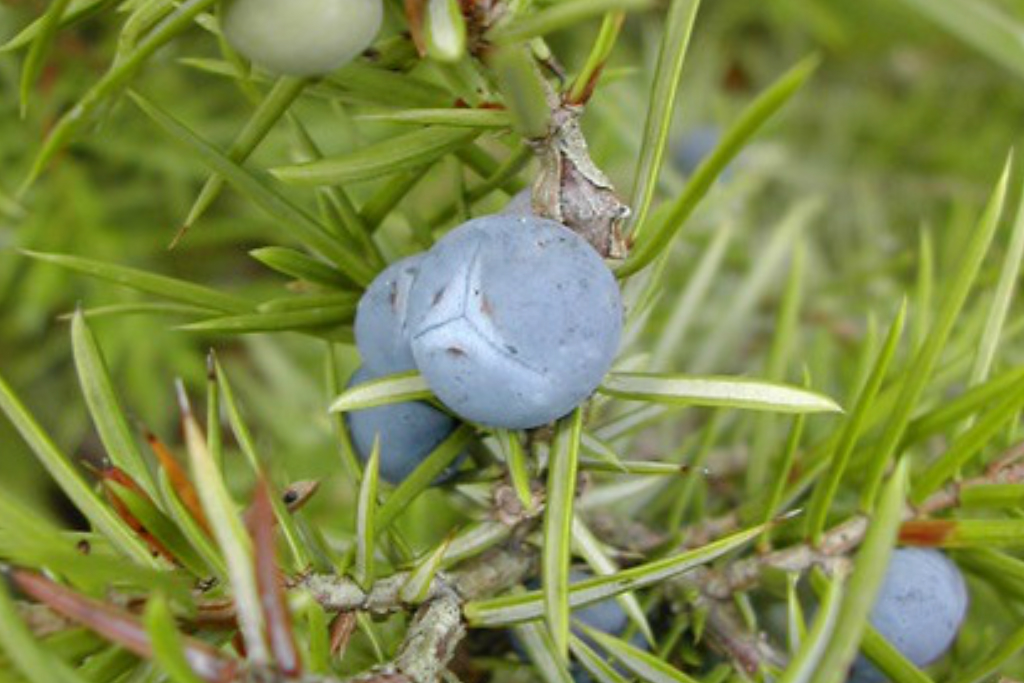Juniper
Juniperus communis L.
Cupressaceae
Have you ever eaten juniper? Undoubtedly, because if juniper is a medicinal plant it is also a very common aromatic herb. Then let’s think, in what dish have you seen these little black berries*? In sauerkraut of course! A good choice of blend because juniper eases digestion, especially digestion of fatty foods. It is also a natural preservative that prevents development of bacteria, and was used well before the invention of the refrigerator.
Juniper is also included in the composition of wines, liquors or spirits, the most famous one being Gin.
Common juniper is found in lawns, heaths, forest edges and even in the mountains. In Drôme, we have five species of juniper, including the very rare thuriferous juniper, whose leaves are not needles but scales.
Juniper berries are harvested during fall, from October to November, on female trees that are older than two years old.
Harvesting is done by beating the branches with a stick over a canvas as juniper thorns are very sharp making harvesting by hand difficult.
In herbalism, juniper is used for its tonic, diuretic and antiseptic properties. It is used to heal from gout, rheumatism, digestive and respiratory problems or urinary infections.
In high doses, it can be irritating to the kidneys so it should not be ingested for too long. This prescription generally applies to all plants, so as not to wear out the organs.
Its essential oil, obtained by distilling branches with their fruits, can be added to massage oils in order to soothe aches and inflammations.
Massage oil for painful joints
Here is a recipe for a massage oil with natural ingredients and made 100% with products from “Drôme”.
Essential oil of juniper 10 drops
Lavender essential oil 15 drops
Scots pine essential oil 10 drops
Rosemary essential oil 10 drops
Olive oil from Nyons 45 ml (about 3 tablespoons)
Apply 5 to 15 drops of the mixture to the painful area and massage
To use only on adults
Do not apply on mucous membranes or eyes.
Not suitable for pregnant or nursing women.
In the Diois area, there is an old custom on farms: hanging juniper branches in sheep pen during winter to avoid epidemics … which sounds logical considering the antiseptic properties of the plant. Experiments are being carried out by diffusing the essential oil as a way to prevent pasteurellosis on goats, which confirms the saying of our elders! * Juniper is a coniferous plant, it does not make berries botanically speaking, but a false fruit that is called galbula.
